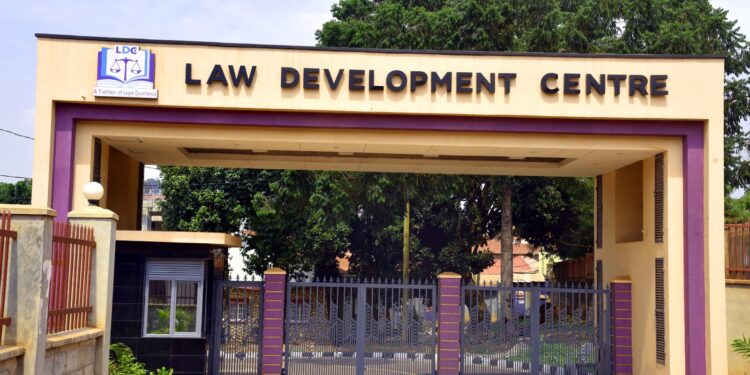Education
Uganda Set to Revolutionize Legal Education with New National Legal Examinations Bill
Uganda is poised for a significant transformation in its legal education system with the introduction of the National Legal Examinations Bill, 2025. This proposed legislation seeks to replace the long-standing Law Development Centre (LDC) with a new independent entity called the National Legal Examinations Centre (NLEC). The move comes amid growing concerns about the capacity of the LDC to handle the increasing number of law graduates and the need to standardize legal training across the country.
Since its establishment in 1970, the LDC has been the sole institution offering the postgraduate diploma in legal practice—a mandatory qualification for law graduates before they can be admitted to the bar and practice as advocates. However, the surge in law graduates over recent years has overwhelmed the LDC, forcing it to introduce multiple intakes within the same academic year to accommodate demand. The new bill aims to address this challenge by decentralizing the provision of the postgraduate diploma, allowing accredited universities to offer this qualification under the supervision of the NLEC. This shift not only promises to reduce the bottlenecks experienced at the LDC but also to elevate the overall quality and accessibility of legal education.
One of the bill’s most transformative features is the introduction of mandatory pre-entry examinations for all prospective law students. Currently, only a handful of universities, including Makerere University and Uganda Christian University, require such exams. By extending this requirement nationwide, the bill aims to ensure that only qualified candidates enter law programs, thereby raising academic standards and reducing dropout rates. This approach seeks to professionalize legal education from the outset, aligning Uganda with global best practices where entry into professional courses is contingent upon demonstrated aptitude.
The bill also outlines a new academic pathway for law graduates, who will be required to undertake an additional year of postgraduate study at accredited institutions before sitting for a national legal examination administered by the NLEC. This contrasts with the current system, where graduates proceed directly to the LDC for a nine-month diploma course. By extending the duration and depth of study, the reforms hope to better prepare future lawyers with the practical skills and knowledge necessary for effective legal practice.
Governance of the NLEC is structured to be inclusive and representative. The governing council will comprise members from the Judiciary, Ministry of Education, Uganda Law Society, and other key stakeholders. This broad-based composition is designed to foster collaboration and ensure that legal education remains closely aligned with judicial expectations and national educational policies. Moreover, the council will have the authority to impose examination fees and enforce strict disciplinary measures against malpractice, including penalties of up to five years’ imprisonment for offenders. These provisions underscore the government’s commitment to maintaining integrity within the legal education system.
Transitioning from the current system to the new framework will present challenges. The bill specifies that current LDC students who have failed three or more exams must enrol at accredited universities to complete their postgraduate diploma, while those with fewer failed exams will have two years to pass supplementary exams administered by the NLEC. This phased approach aims to ensure fairness and minimise disruption, though it may prolong the time some students take to qualify as advocates.
The impact of these reforms extends beyond education to affect employment and institutional dynamics. LDC employees will remain in their roles until contract expiration, with provisions to safeguard their benefits if they are not absorbed into the new NLEC structure. The bill reflects sensitivity to these human resource concerns but also signals a fundamental shift in the legal education landscape.
The reintroduction of pre-entry exams, which the LDC had briefly suspended in 2019 due to a high failure rate, marks a renewed emphasis on academic rigour and selection standards. As the government pushes for these reforms, attention must also focus on providing adequate preparatory support to ensure that aspiring law students, especially from disadvantaged backgrounds, are not unfairly excluded.
Overall, the National Legal Examinations Bill represents a comprehensive attempt to modernise Uganda’s legal education. It aims to create a more efficient, equitable, and high-quality training system for the country’s future lawyers. The success of these reforms will hinge on careful implementation, effective governance, and continuous engagement with all stakeholders to ensure that legal education not only meets professional standards but also remains accessible to a diverse student population. If managed well, these changes could significantly enhance the integrity and competence of Uganda’s legal profession in the years to come.
Comments



























